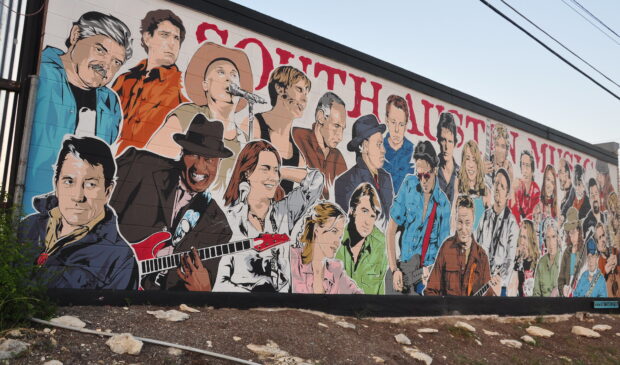Music Commission, staff weigh final criteria for next Live Music Fund grants
Tuesday, April 15, 2025 by
Chad Swiatecki The Music Commission is weighing several potential changes to the city’s Live Music Fund grant program, including the removal of criteria tied to languages spoken and census tract residency, clearer definitions of what qualifies as a live music venue, and a greater emphasis on artist accomplishments rather than personal income or access to financial lending.
At last week’s meeting, commissioners also discussed recommendations to refine how applicants document their marketing efforts and local economic impact. They also urged city staff to simplify the scoring process and expand outreach to underserved communities.
Final guidelines for the 2025 grant cycle are expected to be completed in May, with the next round of funding set to launch this summer.
Commissioners reviewed feedback from a working group that has been reexamining the city’s draft scoring rubric for the grants, which are funded by Hotel Occupancy Tax revenue. Commissioners stressed that their discussion was not to set new policy or introduce additional recommendations but to respond to the latest staff proposals and align them with priorities the commission had previously endorsed.
“We are looking at what we already said we wanted to see in here, looking at what staff has provided … comparing notes and reacting to it,” Chair Nagavalli Medicharla said. “There are some aspects that we feel good to go. There are other aspects in there that are concerning to us, like the (qualified census tract information) and a couple of other items that we are pointing out.”
For the upcoming 2025 cycle, the city plans to allocate $4.8 million in total funding, with grants of $5,000 for emerging artists, $20,000 for professional musicians and independent promoters, and up to $60,000 for live music venues. Applicants must be based in the Austin metro area, with venues required to demonstrate a primary focus on live music programming.
Funds are disbursed in phases: 50 percent at agreement execution, 40 percent after a progress report and the final 10 percent upon completion. Recipients must spend at least 51 percent of their grant within the city limits.
Following criticism over the program’s complexity and a high award amount that limited the recipient pool, city staff and the Music Commission have worked to revise eligibility criteria and streamline the application process. Proposed adjustments include clarifying definitions for local participants, removing contested metrics and prioritizing artist accomplishments over financial status.
Commissioners voiced concern that some measures favored by the city could inadvertently penalize musicians and venues from historically marginalized backgrounds, or those who have been pushed out of certain areas due to displacement.
“We’re talking about legacy for artists this time around, and at the same time we’re talking about including the qualified census tract into this … that’s going to particularly affect people of color, because if there is a legacy with marginalized groups it’s quite possible that they don’t live at a qualified tract anymore because they’ve been doing what they’ve been doing in the city for a long time, and it’s possible that they live in other areas of town,” Commissioner Scott Strickland said.
There was also broad agreement to remove questions related to applicants’ access to financial lending, citing difficulty in verification and questions of equity. Commissioners argued that such factors could place an undue burden on smaller operators and individual artists, potentially excluding qualified applicants who have limited access to traditional banking resources.
The commission pushed city staff to prioritize tangible accomplishments over measuring the percentage of income derived from music, noting that many working artists balance multiple jobs to support their careers. Instead, they called for a robust set of questions assessing musical output, community recognition and public performances, with flexible benchmarks to reflect the range of strategies artists use to build their careers.
For venues, commissioners asked for clearer definitions to determine eligibility and prevent a dilution of the fund’s focus.
Staff indicated final guidelines would incorporate both the commission’s input and operational considerations, particularly regarding tourism-related goals.
“We definitely didn’t see eye to eye from a staff and working group perspective of what sections get more points,” said Erica Shamaly, manager of the city’s Music and Entertainment Division.
“These are (hotel tax) funds that we really need to drive tourism to Austin as a global music destination. We would like to see that section around cultural tourism and marketing to have really more points to stay in line with the statute with the state of Texas,” she said.
Photo made available through a Creative Commons license.
The Austin Monitor’s work is made possible by donations from the community. Though our reporting covers donors from time to time, we are careful to keep business and editorial efforts separate while maintaining transparency. A complete list of donors is available here, and our code of ethics is explained here.
You're a community leader
And we’re honored you look to us for serious, in-depth news. You know a strong community needs local and dedicated watchdog reporting. We’re here for you and that won’t change. Now will you take the powerful next step and support our nonprofit news organization?



